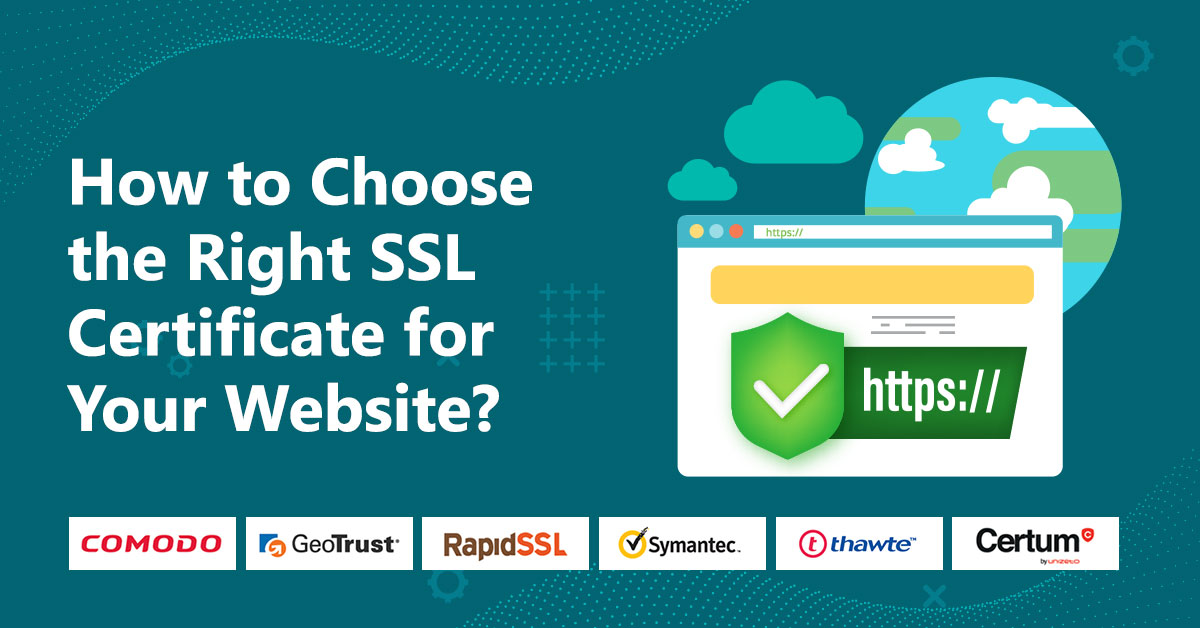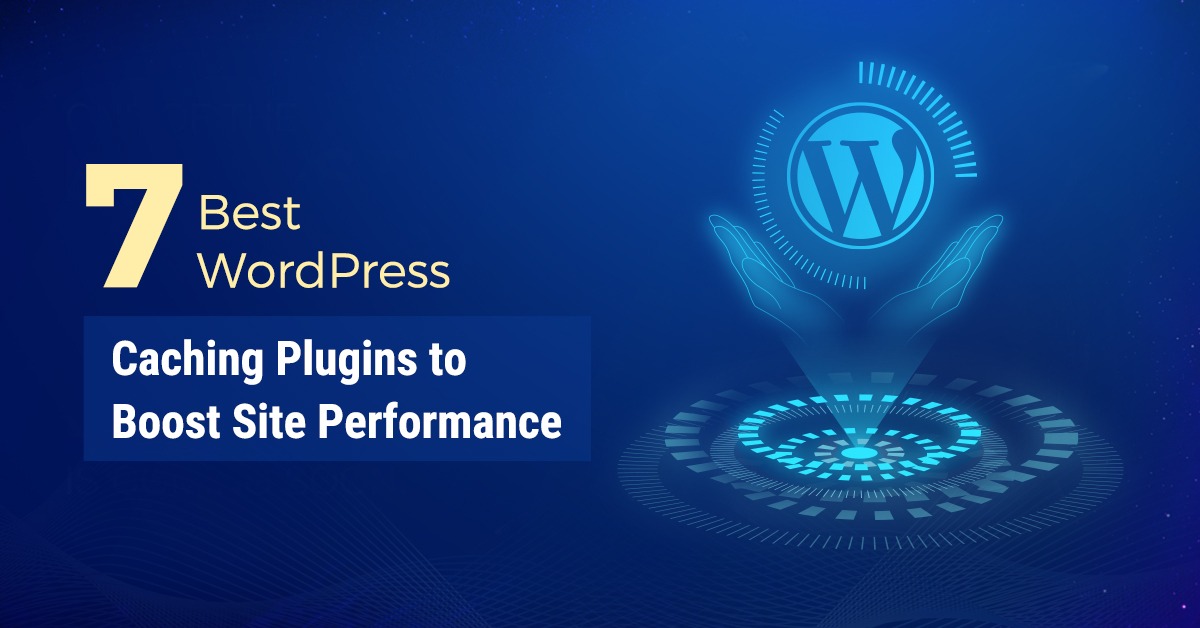
SSL is no longer an optional security measure. Therefore, you must choose an SSL certificate for the website before your website begins to be penalized by browsers.
Buying an SSL certificate can make you want to smack your head against a wall. There is a wide range of certificates and a plethora of categories. The big question is which one to choose? Read on for our exclusive tips on how to improve your website security by picking the perfect SSL certificate for your website.
Today, security is critical in all aspects, including your home, your possessions, and not to forget, your online information – both business and personal! Your website, like everything else in your life, requires the same degree of security. Almost all information about you is accessible and decipherable via your system and website.
Technology is a rapidly expanding sector, and there are numerous ways for businesses to establish and maintain growth rates. In today’s technological world, each established business must have a web presence, whether small or large. Every day, users interact and communicate with technology in several different ways online, which results in ongoing web search and browsing. Most business owners prefer to sell and promote their products and services online via their website’s e-commerce.
In the rapidly developing age of online shopping, discovering and purchasing products is a speedy and convenient procedure. However, many customers feel concerned about the security of their personal information before making a purchase. The most popular, fast-growing method for website owners and operators regarding online security is installing an SSL certificate. An SSL certificate for a website is essential if you want your website to appear credible and secure.
Choosing the right SSL certificate might seem difficult at first, which is why we would be looking into the basic idea about an SSL certificate, tips to choose the right certificate, and types of SSL certificate.
What is an SSL certificate, and why do you need one?
SSL (Secure Socket Layer) certificates are used to safeguard your website from precarious and malicious hackers. You may encrypt and protect the communication between your website and the visitor’s browser with SSL certificates. Consequently, every communication between the parties involved is protected from being intercepted and remains secure. Additionally, an SSL certificate effectively prevents domain spoofing and other equivalent threats by certifying the server’s identity and digital signature.
These certificates are typically installed on web pages that seek personal information from users, such as payment information or a password, among other things. Furthermore, they protect data, enhance your Google rankings, and foster trust between you and your consumers. Eventually, SSL certificates can considerably increase conversion rates. If your website is trustworthy, a user is much more likely to purchase from you.
NTSPL – The Best SSL Certificate Provider in India offers various types of SSL certificates, including –
- Symantec SSL Certificates
- Comodo SSL Certificates
- GeoTrust SSL Certificates
- Thawte SSL Certificates
- Rapid SSL Certificates
- Certum SSL Certificates
Tips on how to choose an SSL Certificate
When purchasing an SSL certificate, website owners and operators need to evaluate many questions before selecting the appropriate SSL certificate for their website. There are countless options for the purchase of an SSL certificate. The characteristics of each certificate are distinct. These characteristics play an important role in selecting the most suited SSL certificate.
SSL certificates can be classified into three broad categories based on the validation process that precedes the certificate’s issuance. Validation is entirely dependent on the sort of certificate you wish to purchase. It varies according to the certificate. The primary question has always been, “How much trust do you wish to offer to your customers?”
Moreover, it would be best to consider the significance of your brand image to your web presence. Do you want your brand to be prominently displayed in the browser’s address bar or only included within the certificate itself? Or are you indifferent about linking your brand identity to your domain?
There are primarily three types of SSL certificates based on their validation level. The three types of SSL certificates are organization validation (OV), domain validation (DV), and extended validation (EV). Each of them has been discussed elaborately below.
- Domain Validation (DV) certificate: DV Certificates are the simplest type of SSL Certificate, requiring the minimum amount of identifying information and confirming that the website owner has administrative power over the domain. DV SSL is the most popular choice for small websites and blogs because it is the most affordable option available. The trust signatures included with DV SSL are somewhat restrictive. Nothing more than HTTPS, a static site seal and a padlock is provided. Moreover, you have no way of knowing if the organization owns the website. As a result, fraudsters can trick consumers through phishing techniques.
- Organization Validation (OV) certificate: The organization validation SSL certificate proves that you hold a domain while also establishing that you are the owner of an organization in a specific country, state, or city. OV SSL certificates are a step up from DV SSL certificates. However, there is a catch. The site visitor has to navigate to the certificate details page to learn more about the company. A typical consumer may be unable to locate it.
- Extended Validation (EV) certificate: When it comes to offering the highest level of authentication, Extended Validation SSL certificates are unrivalled. Extended Validation SSL certificates demand firms produce additional documentation to establish their ownership of a business. This certificate provides the same level of validation as domain and organisation validated certificates but additionally verifies that your business has officially been registered as a business. When an EV SSL certificate is installed, the site immediately receives trust indicators such as a green address bar, a green padlock, and, most importantly, dynamic site seals. This is why large e-commerce enterprises worldwide depend on EV SSL certificates.
SSL Certificates and Domains
The number of domains you wish to protect is another important aspect in selecting the appropriate SSL certificate.
- Single-name and wildcard SSL Certificates: Single-name SSL certificates are used to protect only one subdomain. A Wildcard SSL certificate is similar to a single-domain SSL certificate because it covers all subdomains generated inside the single insured domain. Wildcard SSL certificates are compatible with websites that use subdomains, from small podcast websites to e-commerce stores and enterprise websites.
- Multi-domain SSL certificates: Compared to Wildcard SSL certificates, Multi-domain SSL certificates enable the user to secure several fully qualified domains and subdomains. Therefore, a multi-domain SSL certificate is the best option if you wish to protect more than one primary domain at the same time.
Takeaway
Numerous online tools are available to assist you in making the best selection possible. However, once you have determined the type of validation, the number of domains, and any extra attributes, you can choose an SSL Certificate by yourself. You can also seek the help of an SSL certificate provider in India.
NTSPL is a leading SSL provider in India and can help you establish encrypted and secure connectivity between your website and browsers. SSL certificate for website ensures the security of private data and information as it travels from the browser to the web server, protecting your data and clients from hackers and those attempting to steal or spy on classified material. NTSPL provides a hassle-free process to get an SSL certificate for the website.





